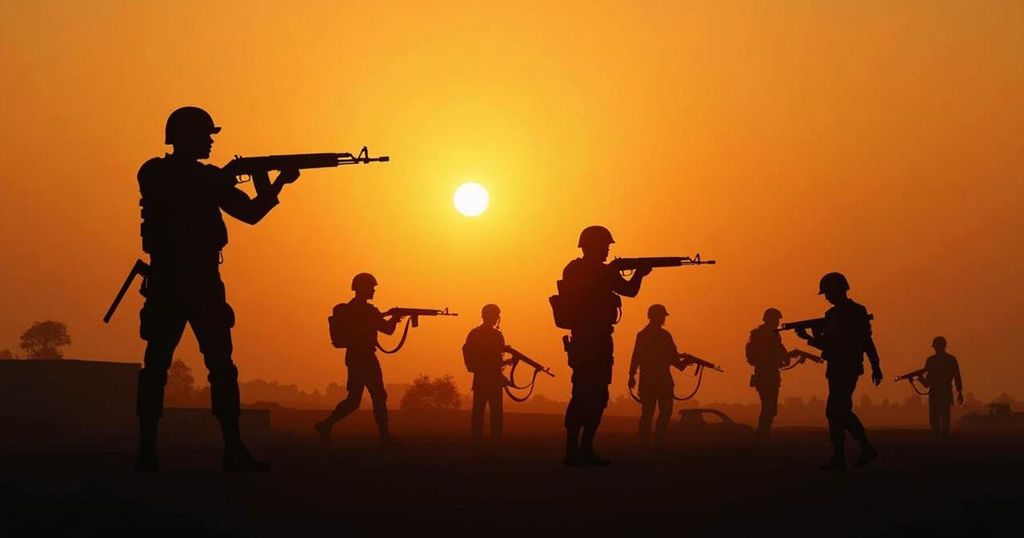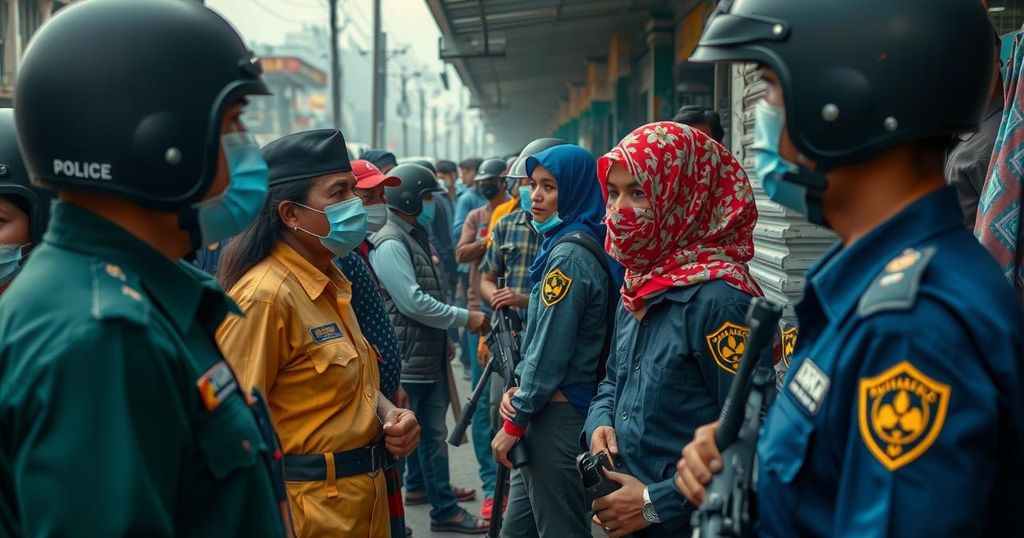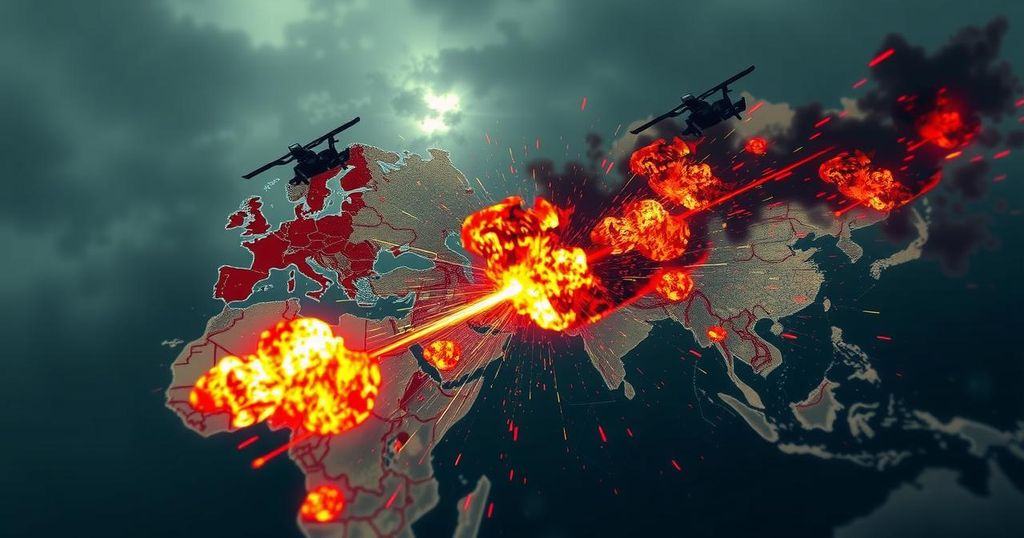Sudan’s Army Intensifies Offensive Against RSF in Khartoum
The Sudanese army has commenced a major offensive against the RSF in Khartoum, marking a pivotal escalation in the ongoing civil war that has led to significant displacement and a humanitarian crisis. Recent military actions involve heavy bombardments and combat as the government attempts to reclaim territory lost since the start of the conflict in April 2023. The UN warns of dire conditions for civilians amid widespread famine and a cholera outbreak.
The Sudanese armed forces have initiated a significant offensive against the Rapid Support Forces (RSF), a powerful paramilitary group, as part of the ongoing civil conflict. This operation, which commenced on Thursday morning, involved government forces shelling RSF bases located in the capital city of Khartoum and the adjacent Bahri area to the north. The conflict has persisted since the onset of violent clashes between the army and the RSF in April 2023, a struggle that has developed into one of the world’s most severe humanitarian crises, according to United Nations reports. The devastating toll of this conflict is reflected in the loss of up to 150,000 lives, with over 10 million individuals—approximately one-fifth of Sudan’s population—displaced from their homes. On Thursday, witnesses reported heavy aerial bombardments and intense ground combat, particularly as government troops managed to cross two pivotal bridges over the River Nile, significantly connecting areas under government control in Omdurman with those dominated by the RSF. Throughout the early fighting, the paramilitary group has maintained control over nearly the entirety of the capital, making these recent military efforts by the government its most substantial initiative in months to reclaim territory. This offensive coincides with a scheduled address by army chief General Abdel Fattah al-Burhan to the United Nations General Assembly in New York. In response to the escalating violence, the UN has demanded immediate measures to safeguard civilians and halt the ongoing hostilities. The conflict’s gravest impacts have been observed in densely populated regions, where both factions have leveled accusations against one another for indiscriminate bombings targeting civilian infrastructure. The UN has cautioned that “relentless hostilities across the country have brought misery to millions of civilians, triggering the world’s fastest-growing displacement crisis.” Half of the displaced individuals are children, with around two million seeking refuge in neighboring countries. Moreover, the humanitarian situation continues to deteriorate, as Sudan has been labelled the “world’s largest hunger crisis,” with alarming fears of widespread famine due to the inability to cultivate crops amid the turmoil. There are also mounting concerns regarding a potential genocide directed at non-Arab populations in the Darfur region, alongside an ongoing choleral epidemic, which has claimed over 430 lives from this treatable illness in the past month, according to the health ministry. The conflict significantly hampers the provision of essential medical aid to those in need.
Sudan has been embroiled in civil conflict since April 2023, primarily as a result of a power struggle between the Sudanese army and the Rapid Support Forces (RSF). This conflict has escalated into what the United Nations describes as one of the worst humanitarian crises in modern history. As fighting continues, humanitarian conditions have worsened, leading to massive displacement, widespread hunger, and threats of violence against civilians, particularly in the western region of Darfur. The population faces challenges not only from the conflict itself but also from a cholera outbreak exacerbated by the dire conditions surrounding health care access.
The situation in Sudan remains precarious, with recent military actions indicating a serious escalation in the ongoing conflict between the Sudanese army and the RSF. The humanitarian crisis continues to deepen, affecting millions, particularly children, and raising alarm over the potential for genocide and widespread famine. The international community, represented by the United Nations, calls for urgent action to protect civilians and address the severe humanitarian needs that arise from this conflict.
Original Source: www.bbc.com








Post Comment